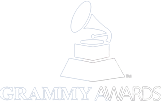Home Frank’s Blog Music: The Essential Ingredient
Music: The Essential Ingredient
Frank Fitzpatrick 12/02/2020

|
No time to read? Pick your language & press PLAY
Getting your Trinity Audio player ready...
|
Outside my bedroom window is a beautiful maple tree. Every morning, just before sunrise and without fail, a flock of birds gathers on its branches. They begin to loudly chirp, tweet and sing their hearts out.
Do you ever wonder why birds sing in the morning?
According to Dr. Dan Carlson, founder of Sonic Bloom Sustainable Gardening and Farming, birds sing to help plants grow. Dr. Carlson has set out on a mission to increase the rate and yield of natural food production to feed an ever-expanding population. As part of his research, he turned his attention to the influence of sound.
Dr. Carlson and his team tested the impact of several kinds of music to stimulate plant growth. They set up speakers and broadcast a variety of music and sounds to rows of fruits and vegetables — giving the same level of care to their sonic environment as a farmer might to water, soil microbes and sunlight. Carlson found that his best results came from playing sounds similar to the singing of a chorus of birds. Could it be that the lifecycle of plants, and the well-being of our planet, is dependent on birdsong?
Apparently, the leaves of plants have very sensitive pores called stomata, which open up to take in nutrients and moisture that are especially rich during the cool morning dew. These stomata respond to the sounds in their environment. The flock of singing birds in my maple tree at dawn lets the stomata know it is time to open up, enabling them to take in their essential sources of nutrition and energy in the critical window between dawn and the hotter part of the day.
So we might say that the birds’ singing is like a musical alarm clock that helps wake up the stomata so the plants can have a healthier breakfast and a more productive day.
Music: Good for Plants, Good for Us
If music has this effect on plants, imagine the impact on the trillions of cells in our own bodies. Like those plants, our entire systems are vibrating at a cellular level.
According to a 2016 National Institute of Health study on the direct effects of acoustic music vibrations on human cells, the mechanisms of cell growth and death, for both auditory and nonauditory cells, can be induced by acoustic vibrations. The quality of those vibrations and the highly complex systems they control — our emotions, thoughts, moods, perceptions and even our health — can be significantly affected and shaped by music.
Whether the sweet song of a sparrow at dawn or the celebratory roar of a Beethoven symphony, music is a form of energy — a life force — that resonates at our core. In addition to shifting our own energy on demand, the right music can help us organize our thoughts, stimulate our bodies to move and reset our emotional state so we pass through the stresses of our day in a more relaxed, productive and inspired way.
Beethoven, Plato and other philosophers saw music as more than sonic nutrition for the body and mind, however. They credited it as a form of higher intelligence, a godlike spirit that understands the complexity and relationship between our human and divine nature. The former head of education for Harvard, Howard Gardner, in his 1983 groundbreaking cognitive theory of multiple intelligences, lists music as one of the seven distinct forms of human intelligence, right up there with logical–mathematical and linguistic. Even Einstein understood and applied this musical intelligence to inspire his genius and creative process.
While many of our leaders today write off music as a “soft” subject — an extracurricular or nonessential part of our human experience — I couldn’t disagree more. I have spent a great deal of time over the past few years studying and speaking about the intrinsic power of music. While I don’t consider myself a preacher, I do feel a calling and responsibility to bring this awareness to the forefront.
I firmly believe, like neuroscientist Dr. Daniel Levitin and biologist Bruce Lipton, that music serves an important evolutionary function. In fact, music is even more powerful as a catalyst for our growth and development as a species than birdsong was for the plants in Dr. Carlson’s experiment.
The Universal Resonance of Music
We have regions of the brain specifically devoted to processing music. Babies respond to music as early as in the womb. It isn’t long after they are born that they begin moving and responding to rhythmic patterns and intervals, whether they come from songs or musical speech referred to as “parentese.”
Music has been an expression of virtually every culture ever studied. And although the musical styles and expressions of cultures, time periods and individuals can differ greatly (what sounds like beautiful music to one generation or culture might sound like unorganized noise to another), some elements appear to resonate universally, as if connected to our DNA.
In Bobby McFerrin’s presentation to an international audience at the World Science Festival in 2009, titled “Notes and Neurons: In Search of the Common Chorus,” he demonstrates how everyone in the audience, regardless of language or culture, is familiar with the same five-note pentatonic scale. As he sings the first four notes, the audience universally fills in the missing note, singing it together on demand.
Beyond the scientific evidence, I look at what has helped me survive and bring me into balance through the most challenging times of my life, as well as what has inspired me during some of my most rewarding experiences. Music has been at the heart of them all — both as a place to turn to and as a creative source that helps me express myself as well as reimagine and reinvent my world, inside and out.
I look to my experience working with people across the globe who, without music, would find life unbearable. One of those people — friend, recording artist and humanitarian Emmanuel Jal — started his life in one of the most war-torn and devastated countries in the modern world, Darfur. By the time he was 8 years old, he was forced to become a child soldier and carry an AK-47 over his shoulder. He witnessed the genocide of his people, including the brutal killings of many of his own family members. As a young teenager, Jal managed to escape Darfur, but not the trauma and horrors of what he had lived through. Music gave him his first experience of inner peace and a pathway to regain his sanity. It also gifted him a sense of himself and the strength to become an artist and to share his message and his music on the world stage.
A couple of years ago, I interviewed Jal and asked how he and others in his country were able to survive such incredible challenges. What was it that gave them the energy and hope to persevere when things were so bleak?
“Music,” he said. “When we had no food to eat, we would dance and sing to fill our bellies. When we found food, we would dance and sing to give praise. Music was part of us.”
Music is the beat and rhythm of life that unites us and makes us all feel human. Music can help open hearts and create empathy, bringing hope for a future in which we stop trying to destroy each other. Beyond its effect on us as individuals, music can impact whole communities and help shape the perceptions of entire cultures. The intentional and intelligent integration of music into our personal lives, culture and communities is essential for both the individual and collective wellbeing.
Through proven and meaningful applications of music, we can amplify human potential and better insure the vital development of more intelligent, resilient, creative and compassionate generations to come.
Help transform lives through music. Make a donation today at EarthTones.Org
Want to Learn More?
To learn more about how you can use the Power of Music to Unleash Your Potential, check out the FREE AMPLIFIED MASTERCLASS.
To learn how we can use music to create a better world, and support music programs and research for empowering those in need, check out our work at the WHYMusicCampaign.com.
To learn more about upcoming programs, books, music, and film releases, Sign up here.
Looking to book me as a speaker? Learn more here.
••••
About the Author
Frank Fitzpatrick is a Creative Visioneer, Engagement Expert and High-Performance Coach on the Faculty of Singularity University’s Exponential Medicine.
To connect, go to FrankFitzpatrick.com
To learn more about working 1-on1 with Frank, go to BeyondPerformance.Life
Related Articles
Food For Thought: Curating a Sound Musical Diet
Music & Gratitude: The Gifts That Keep On GivingCan Music Really Heal Us Now?
The Power Playlist: Your Soundtrack to a Better LifeMusic For Hope: Pathways for Perseverance
I’m here to help YOU create a better world, inside and out.
Contact Me© 2025 Frank Fitzpatrick Website by AllHereIndia












